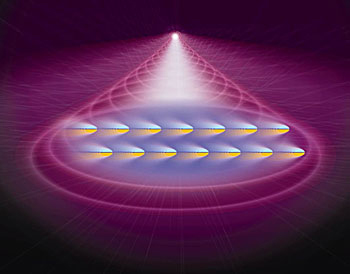Cobham, Jaguar Land Rover and Ricardo will carry out research into the design of economic electric motors that avoid expensive magnet materials
Next-generation electric motors for low carbon emission vehicles are the target of a new collaborative research program to be led by Cobham Technical Services. The project, ‘Rapid Design and Development of a Switched Reluctance Traction Motor’, will also involve partners Jaguar Land-Rover and engineering consultancy Ricardo UK, and is co-funded by the Technology Strategy Board.
As part of its work in the project, Cobham will develop multi-physics software and capture the other partners’ methodology in order to design, simulate and analyze the performance of high efficiency, lightweight electric traction motors that eliminate the use of expensive magnetic materials. Using these new software tools JLR and Ricardo will design and manufacture a prototype switched reluctance motor that addresses the requirements of luxury hybrid vehicles.
The project is one of 16 collaborative R&D program to have won funding from the UK government-backed Technology Strategy Board and the Department for Business, Innovation and Skills (BIS), which have agreed to invest $15.5 million aimed at achieving significant cuts in CO2 emissions for vehicle-centric technologies. The total value of this particular motor project is around $2 million, with half the amount funded by the Technology Strategy Board/BIS, and the rest by the project partners.
According to Kevin Ward, Director of Cobham Technical Services – Vector Fields Software, “Design software for switched reluctance motors is at about the same level as diesel engine design software when it was first introduced. Cobham will develop its existing SRM capabilities to provide the consortium with enhanced tools based on the widely used Opera suite for design, finite element simulation and analysis. In addition to expanding various facets of Opera’s electromagnetic capabilities, we will investigate advanced integration with our other multi-physics software, to obtain more accurate evaluation of model related performance parameters such as vibration. Design throughput will also be enhanced via more extensive parallelisation of code and developing an environment which captures the workflow of the design process.”
Tony Harper, Jaguar Land Rover Head of Research, said, “It is important to understand the capability of switched reluctance motors in the context of the vehicle as a whole so that we can set component targets that will deliver the overall vehicle experience. Jaguar Land Rover will apply its expertise in designing and producing world class vehicles to this project, with the aim of developing the tools and technology for the next generation of electric motors.”
Dr Andrew Atkins, chief engineer – innovation, at Ricardo UK, said, “The development of technologies enabling the design of electric vehicle motors that avoid the use of expensive and potentially carbon-intensive rare-earth metals, is a major focus for the auto industry. Ricardo is pleased to be involved in this innovative program and we look forward to working with Cobham and Jaguar Land Rover to develop this important new technology. This will further build upon our growth plans for electric drives capability and capacity.”
The project has a three year timetable, at the end of which improved design tools and processes will be in place to support rapid design, helping to accelerate the uptake of this technology into production. Aside from the need to further reduce CO2 emissions from hybrid vehicles by moving to more efficient and lower weight electric motors, there is an urgent requirement to eliminate the use of rare earth elements, which are in increasingly short supply and have risen ten-fold in cost in recent years. Virtually all electric traction motors currently used in such applications employ permanent magnets made from materials such as neodymium-iron-boron and samarium-cobalt. Since switched reluctance motors do not use permanent magnets, they are likely to provide the ideal replacement technology. However, one of the main challenges of the project will be to produce a torque-dense motor that is also quiet enough for use in luxury vehicles.
For further information please contact:
Robert Kaczmarek
Cobham Technical Services – Vector Fields Software
1700 N Farnsworth, Aurora, IL 60505
P: (630) 851-1734
vectorfields.info@cobham.com
http://www.cobham.com/technicalservices



